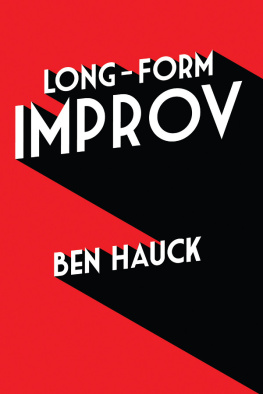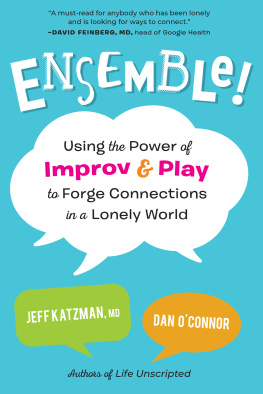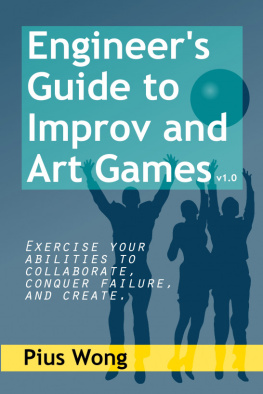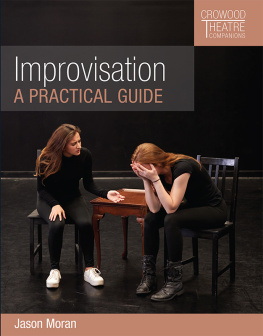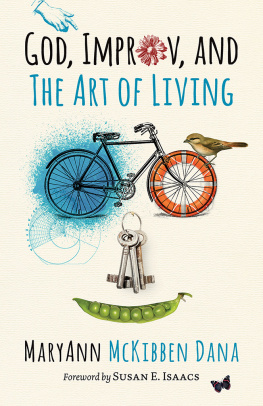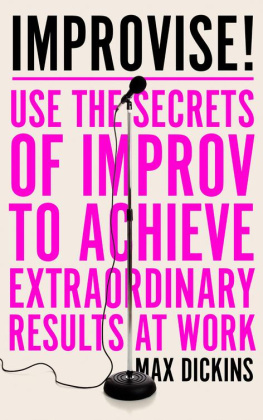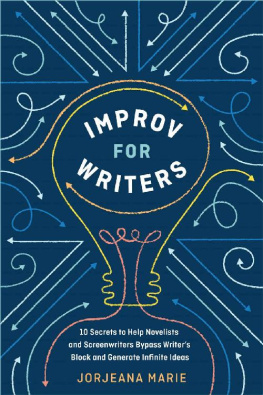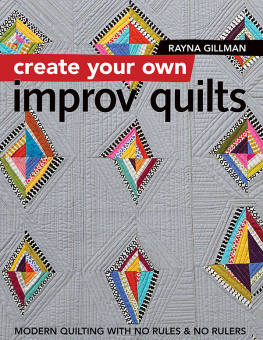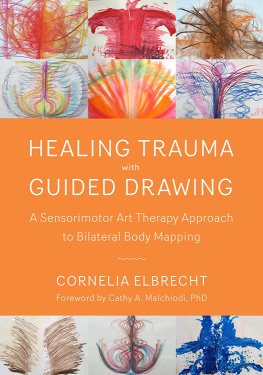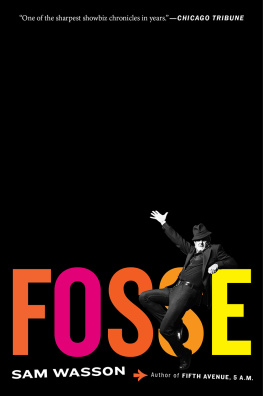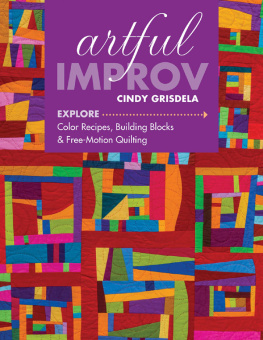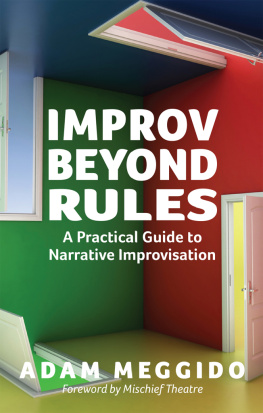Copyright 2012 by Ben Hauck
All Rights Reserved. Copyright under Berne Copyright Convention, Universal Copyright Convention, and Pan American Copyright Convention. No part of this book may be reproduced, stored in a retrieval system, or transmitted in any form, or by any means, electronic, mechanical, photocopying, recording or otherwise, without the express written consent of the publisher, except in the case of brief excerpts in critical reviews or articles. All inquiries should be addressed to Allworth Press, 307 West 36th Street, 11th Floor, New York, NY 10018.
Allworth Press books may be purchased in bulk at special discounts for sales promotion, corporate gifts, fund-raising, or educational purposes. Special editions can also be created to specifications. For details, contact the Special Sales Department, Allworth Press, 307 West 36th Street, 11th Floor, New York, NY 10018 or
For more information about the author, about long-form improvisation coaching, classes, and seminars, as well as information about including long-form improvisation in your schools curriculum, please contact the author via his website, http://benhauck.com.
Grateful acknowledgment is made to John W. Kirk for permission to extensively quote from The Art of Directing. Copyright 2004 by John W. Kirk, Ralph Bellas, and Christina Kirk.
Published by Allworth Press, an imprint of Skyhorse Publishing, Inc. 307 West 36th Street, 11th Floor, New York, NY 10018. Allworth Press is a registered trademark of Skyhorse Publishing, Inc., a Delaware corporation.
www.allworth.com
Cover design by Irvin Rodriguez
Library of Congress Cataloging-in-Publication Data is available on file.
ISBN: 978-1-58115-981-3
eISBN: 978-1-62153-236-1
Printed in the United States of America
CONTENTS
Acknowledgments
M any extraordinary people contributed their time, energy, insight, and support to my eight-year endeavor to write a book on long-form improv.
Primarily, Long-Form Improv couldnt have been made without the yes-anding of publisher Tad Crawford. His Allworth Press has been critical to the existence of this book, and to him I am indebted for his support and perspective.
Kate Johnson, a literary agent and friend, permitted me to capitalize on our friendship to gain a better understanding of the publishing industry as I shopped the manuscript around. Kates voluntary guidance provided me with many fruitful avenues for getting the manuscript out, and her advice paid off mightily. Thank you very, very much, Kate.
Amy Ellenberger gave me my first shot at teaching long-form improv, and I am honored by her trust and faith in me. Little did Amy know that this experience would unite her with Chris DePaola, Mike Faber, Victoria Libertore, Rebecca Lupardo, Brian MacInnis Smallwood, Joe Mathers, Ryan Migge, Casey Weaver, and Jesse Wilson as a long-form improv team who would continue to work together weekly for a number of years. I am thankful to these members of Devils Dancebelt for allowing me to experiment with them as I tried to figure out how to teach long-form improvs more mysterious lessons.
My gratitude to Greg Brill, owner of multinational consulting firm Infusion Development, could not be greater. Greg wanted an ambitious improv training program for his software engineers, and from Gregs vision Infusion Improv was born. If Bradford West had accepted Gregs original invitation to run the program, I wouldnt have had one of the most incredible experiences a long-form improv teacher could have. And if Elizabeth Cherry had not told me that Bradford had recommended me in his place, I would never have met Greg or run improv training programs in three different countries. Bradford and Liz, you made a huge difference in my life as a long-form improv teacher, and you sustained the evolution of this books ideas.
A number of readers volunteered their time and energy to review the different manifestations of the work. Of note, I am deeply indebted to Professor Jonathan Kranz. Jono was a coworker of mine at a small Manhattan office when I was trying to better understand the notion of game. He heard me talking one day about looking up game theory on the Internet. Had Jono not lent me Thomas Schellings The Strategy of Conflict, my first book on game theory, I would never have had the motivation to write this book. Henry Carrigan of Northwestern University Press quickly took interest in my manuscript and arranged to have it read. Im grateful for the feedback I got from him and his readers, and it shaped the final work. Aimee Davison read versions of the manuscript seven years apart and created an enthusiastic video review of the manuscript in the effort to promote the work, a project Im grateful she took on. Playwright and editor Michael Bettencourt, who volunteered his professional services in beta reading one of the last versions of my manuscript, went above and beyond the call of duty in reviewing the work and accepted only thank-yous as compensation. Thank you again, Michael; your feedback bolstered my confidence. Lastly, Elizabeth Corkum provided not only an actors and beginning improvisers perspective in beta reading a late version of the manuscript, but also emotional support in the endeavor to get it (as well as all my other projects) done. I thank you very much for your support, Elizabeth.
My own teachers deserve recognition for the values they instilled in me as a performer of both scripted and unscripted work. I am beholden to John W. Kirk and his daughter Christina Kirk, both of whose ideas disciplined my directing and acting and both of whom let me pick their brains to better understand their theories. I thank Dennis Romer, John Stefano, and Ed Vaughan, all acting teachers with Christina Kirk at Otterbein College (now Otterbein University) where I received my degree in acting. They helped me to become a more disciplined and educated actor, and their commitment to arm-ing acting students with professional performance skills brought me to Otterbein to lead long-form improv seminars. It was at Otterbein that Doreen Dunn taught me my beloved Czechoslovakia Boom Chicka Boom warm-up. I learned long-form improv from innumerable people but primarily from George Badecker, Michael Delaney, Armando Diaz, Billy Merritt, and Kevin Mullaney, for whose wisdom I am extremely grateful. Mullaneys Improv Resource Center message boards provided me with an online forum for discussion of improv ideas with other improvisers, and Im thankful he permitted my prolificity there over the years.
Paul Foxcroft, Charlotte Gittins, Cariad Lloyd, Sara Pascoe, and Tom Salinsky played significant roles in my education about the British improv scene, and each helped me to become a better improviser when I was teaching in London. Collectively, they helped me gain footing in the U.K. improv world during my three-month stay, and they enthusiastically supported my import of American-style long-form improv to the stage in their country.
A number of friends and acquaintances influenced my journey in writing this book. Thank you to Zohar Adner for introducing me to long-form improv; Amy Marie Bucciferro for being one of my biggest supporters; Madeleine Burns for long talks about strange improv ideas; David Ewing for providing valued research materials; Michelle Hammer for her keen eye and open ear; Paula Lopez for rabidly supporting my professional improv pursuits; Amy McAlexander for enduring the manic enthusiasm I had for my project; and Lisa Robinson, an American I met in London, for reminding me of the word endowing. I would also like to thank Elizabeth Beasley, Darcy Buelow, Mandy May Cheetham, Heather Collis, Dena Croog Cohen, Jenn Dominguez, Jeremy Fulwiler, Michelle Gulman, Lyssa Mandel, Dave McKeel, Lisa Moses, Ashley Palmer, Scarlet Perez, Gina Priano-Keyser, Blair Schulman, Jennifer Tnroo, and Danielle Zeghbib, all of whom listened to my ideas with interest.
Next page
